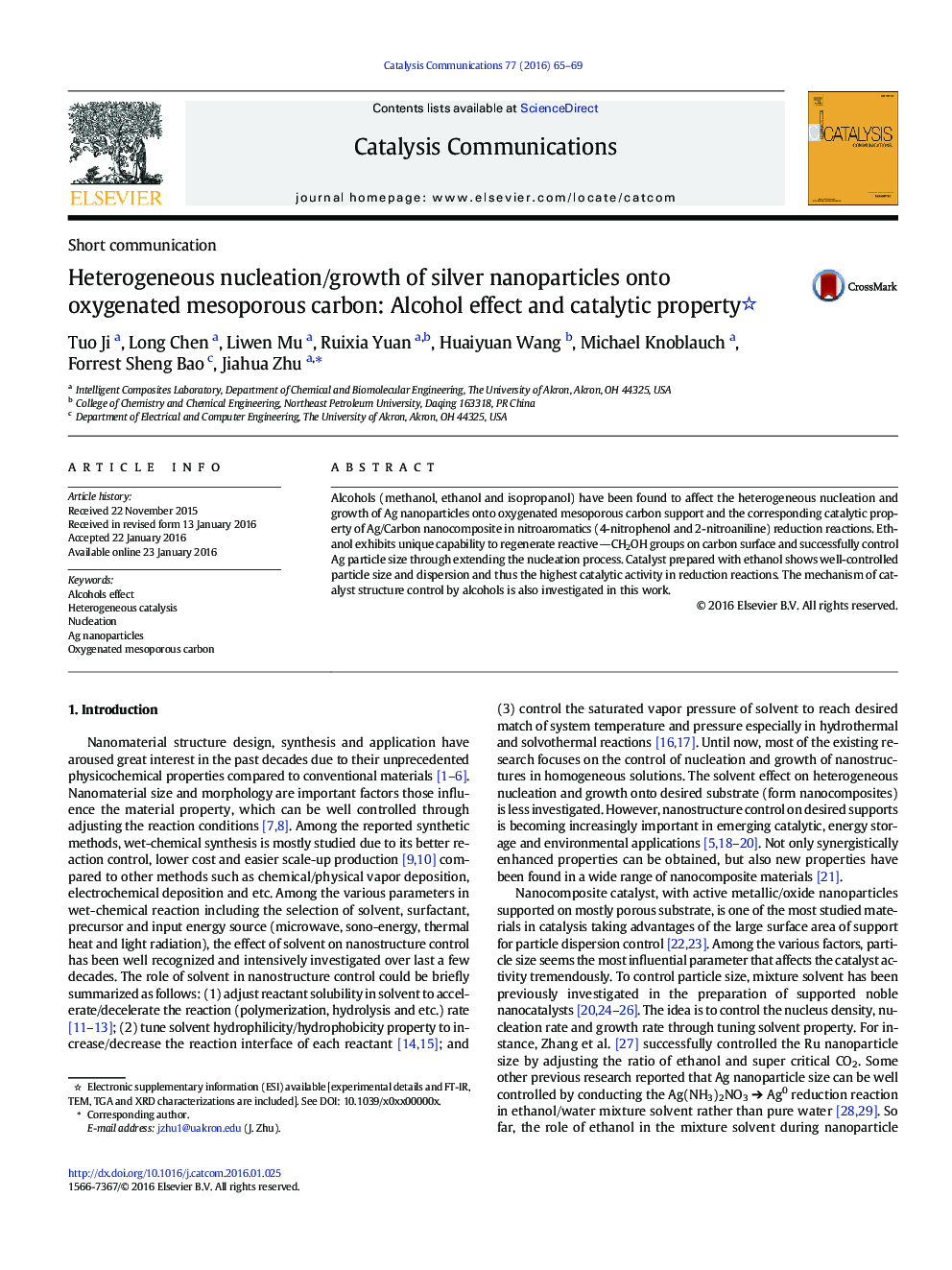| Article ID | Journal | Published Year | Pages | File Type |
|---|---|---|---|---|
| 49325 | Catalysis Communications | 2016 | 5 Pages |
•Alcohols affect heterogeneous nucleation and growth of Ag nanoparticles.•Ethanol promotes Ag nanoparticle size and dispersion control.•Ethanol regenerates reactive CH2OH groups on oxygenated carbon surface.•Catalyst prepared in ethanol shows highest reactivity in reduction reaction.
Alcohols (methanol, ethanol and isopropanol) have been found to affect the heterogeneous nucleation and growth of Ag nanoparticles onto oxygenated mesoporous carbon support and the corresponding catalytic property of Ag/Carbon nanocomposite in nitroaromatics (4-nitrophenol and 2-nitroaniline) reduction reactions. Ethanol exhibits unique capability to regenerate reactive CH2OH groups on carbon surface and successfully control Ag particle size through extending the nucleation process. Catalyst prepared with ethanol shows well-controlled particle size and dispersion and thus the highest catalytic activity in reduction reactions. The mechanism of catalyst structure control by alcohols is also investigated in this work.
Graphical abstractAlcohol promotes regeneration of reactive sites in oxygenated mesoporous carbon support during heterogeneous nucleation/growth of silver nanoparticles.Figure optionsDownload full-size imageDownload as PowerPoint slide
